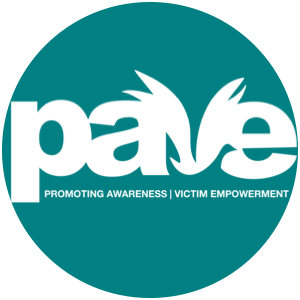Survivors of Sexual Violence & Substance Use Disorder
We often hear about survivors of sexual assault experiencing mental health issues like depression, anxiety, and post-traumatic stress disorder. Less discussed but equally, if not more harmful, is the risk of survivors developing substance use disorder.
Understanding Substance Use Disorder in Survivors
Substance Use Disorder (SUD), often referred to as substance abuse or drug addiction, is a disease that affects one’s brain and behavior. It creates an inability to control the use of substances, like drugs or alcohol, despite the potentially harmful consequences. For many years, much stigma has surrounded substance use disorder and people are often labeled as “addicts” or “junkies.” However the American Psychiatric Association’s gold-standard text, the DSM 5, has officially recognized substance use disorder as a mental illness.
Survivors are at particular risk for developing SUD due to the high rate of PTSD within the community. PTSD, coupled with the lack of positive coping skills often leads to substance use for relief. Survivors are 13 times more likely to abuse alcohol and 26 times more likely to abuse drugs than those who have not experienced sexual abuse, according to the American Addiction Center.
Understanding that SUD is a disease developed after trauma, rather than a choice, is fundamental to supporting survivors who are using substances to cope with trauma. SUD creates a neurological change that makes it incredibly difficult to stop substance use; it’s never as simple as just quitting cold turkey. It is never the survivor’s fault.
Survivors often turn to substances for several reasons:
A coping mechanism or escape from trauma
Reducing feelings of isolation or loneliness
Self-medication
Boost confidence and self-esteem
Self-harm or self-destructive behavior
Studies have shown that rape survivors are 3.4 times more likely to use cannabis, 5.3 times more likely to abuse prescription drugs, 6.4 times more likely to use cocaine, and 10 times more likely to use other hard drugs.
Moreover, survivors of childhood sexual abuse are even more at risk of developing SUD. Female adult survivors who were sexually abused as a child are 3 times more likely to develop SUD than the general population. According to the Behavioral Health Resources & Services for Carroll County, 90% of alcoholic women experienced sexual abuse or extreme violence as a child.
Positive Coping Mechanisms for Survivors
There are many healthier, positive coping mechanisms that survivors can utilize rather than substances. Trauma-informed therapy, like EMDR therapy can help survivors find the relief they need. For more information, please visit EMDRIA.org.
Yoga, mindfulness, and meditation are other powerful tools that can help survivors move through trauma trapped in the body. Trauma-informed yoga can help survivors work through their discomfort, understand their experience, and separate their feelings from their actions. Look to see if your local studio offers trauma-informed yoga as an option for healing.
For Immediate Support
If you or a loved one is suffering from substance use disorder after a traumatic experience, please know that you are not alone. PAVE is here to support you.
For immediate support and help finding local resources, contact Substance Abuse and Mental Health Services Administration’s (SAMHSA) 24/7, confidential hotline: 1-800-662-HELP(4357).
You are not alone and what you are experiencing is not your fault. We are here to help you find hope and support.
About the Author
Hi there, I’m Bella Mutert, a social media and marketing intern at PAVE. I am a senior at DePaul University studying Communications, Media, PR & Advertising. As a survivor myself, I am thrilled to be interning at PAVE and making a difference in other survivors’ lives. I am passionate about sharing holistic healing tools with survivors and raising awareness about the intersection of sexual violence and mental health issues/ substance use disorder. Thanks for reading!

